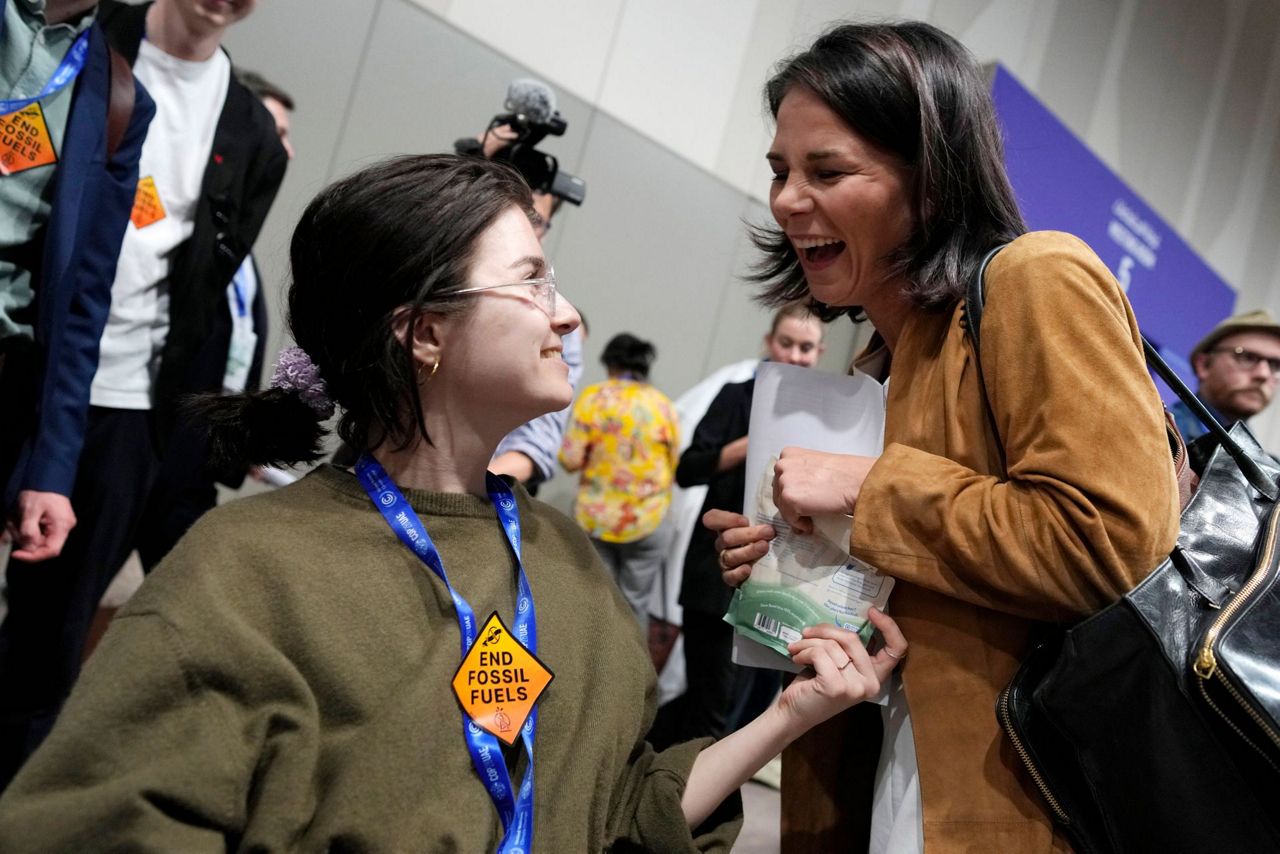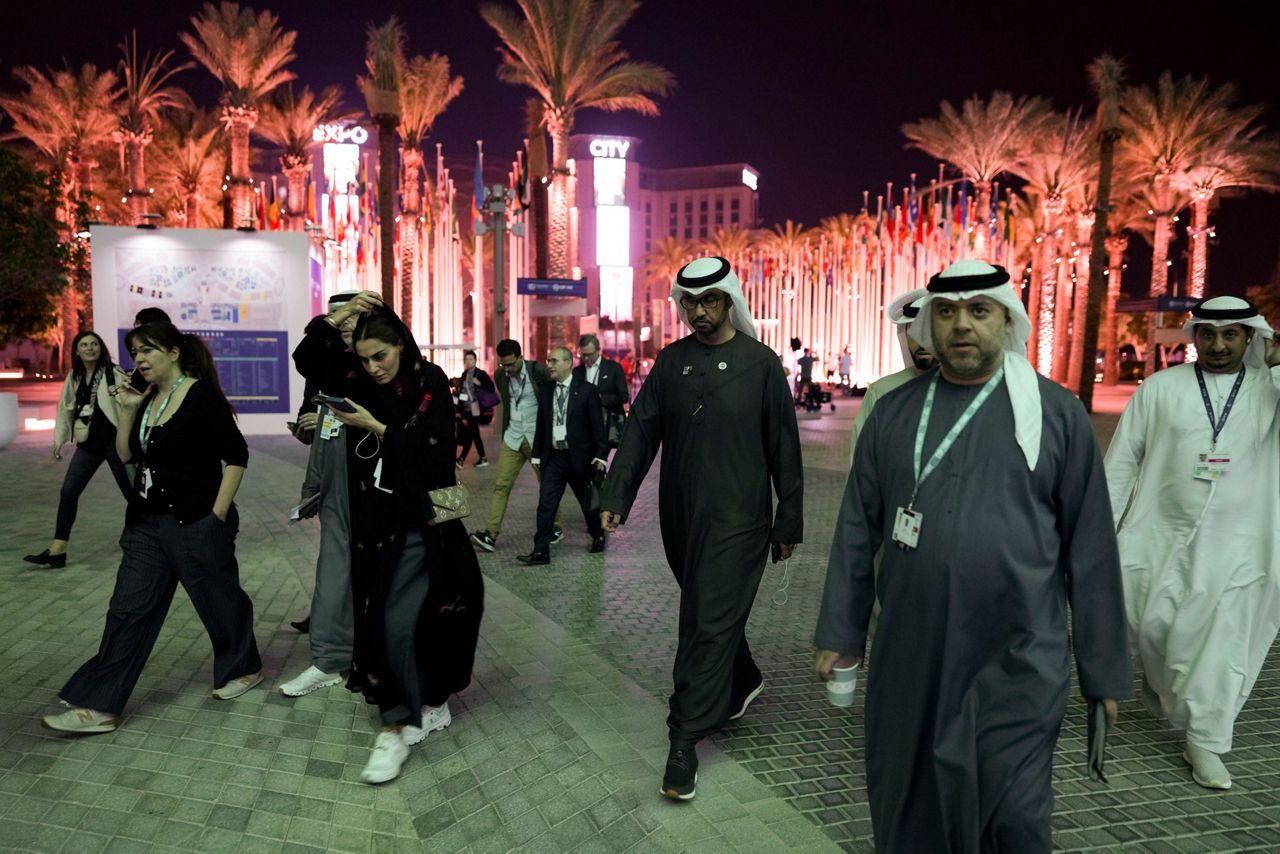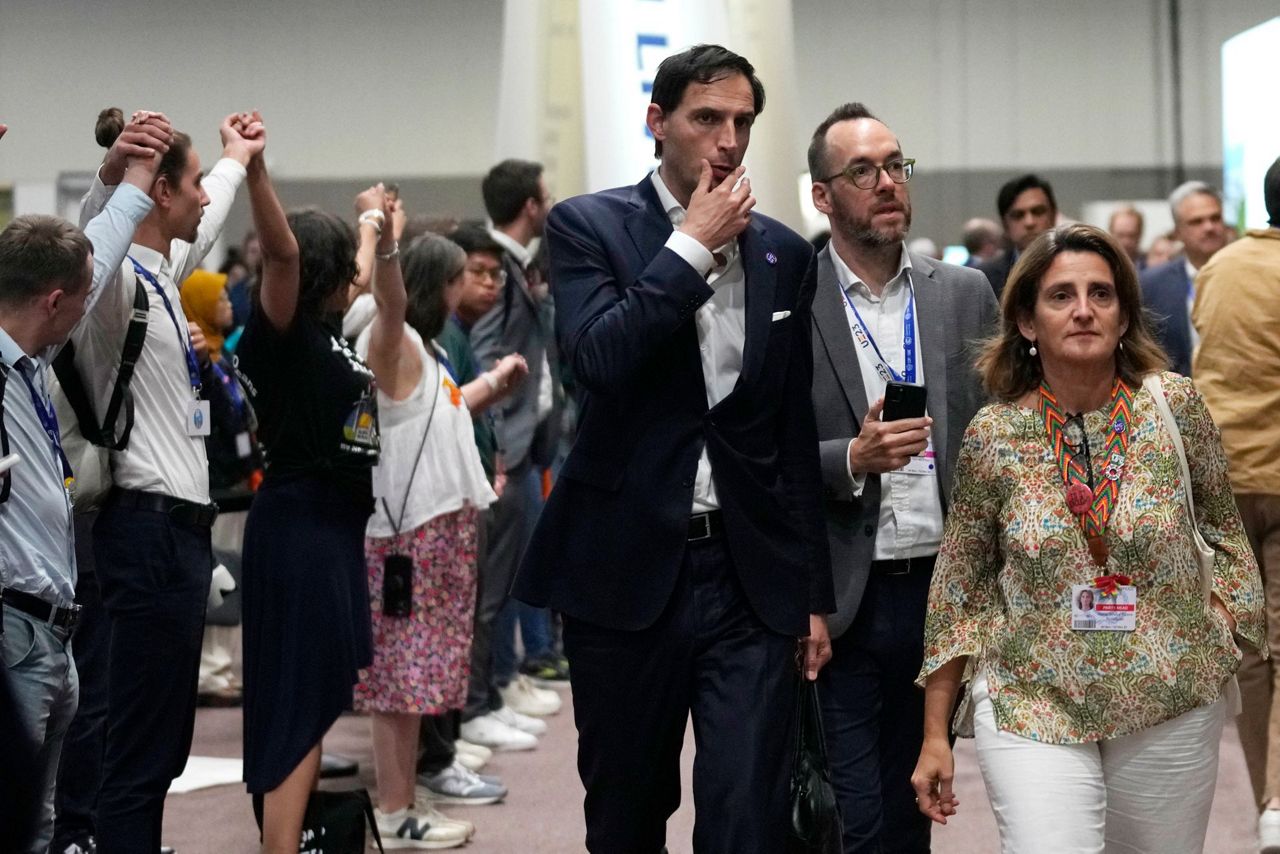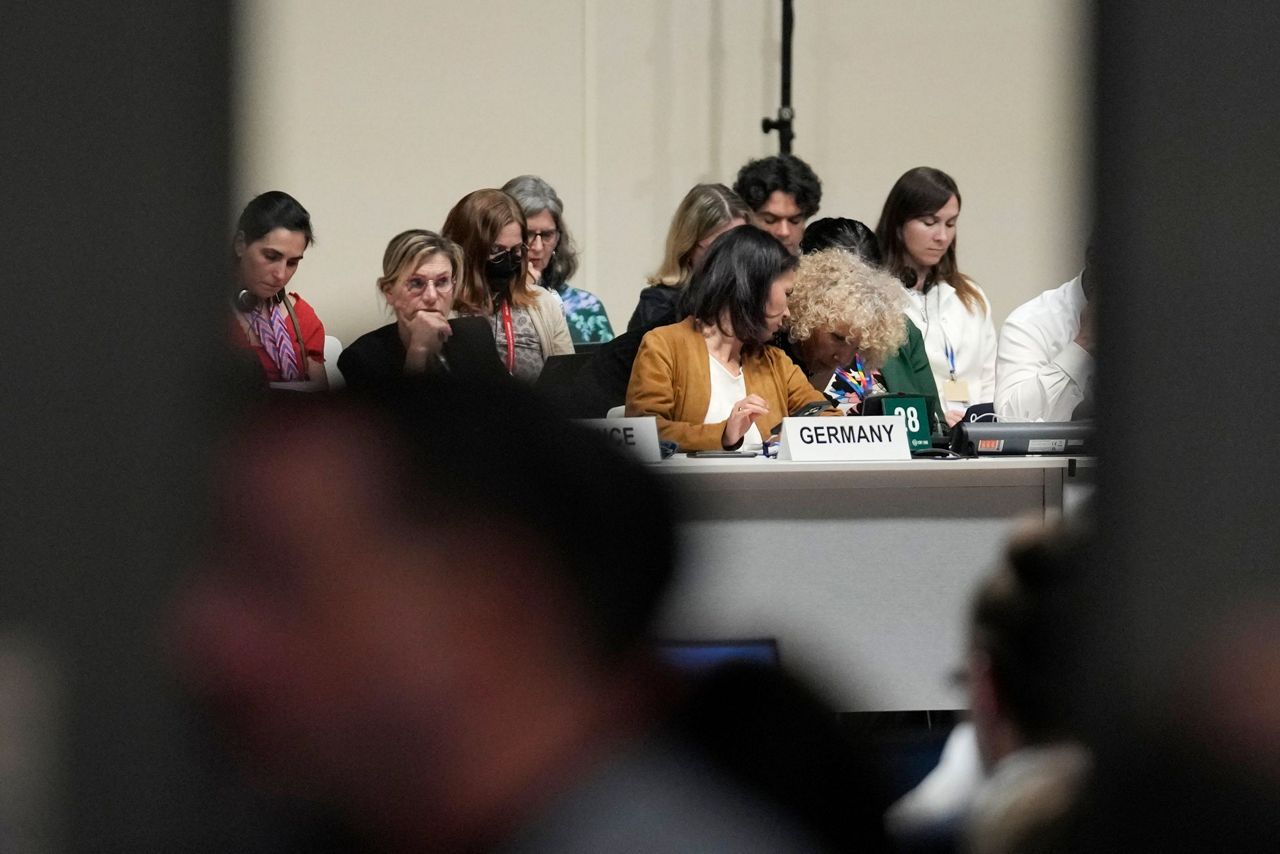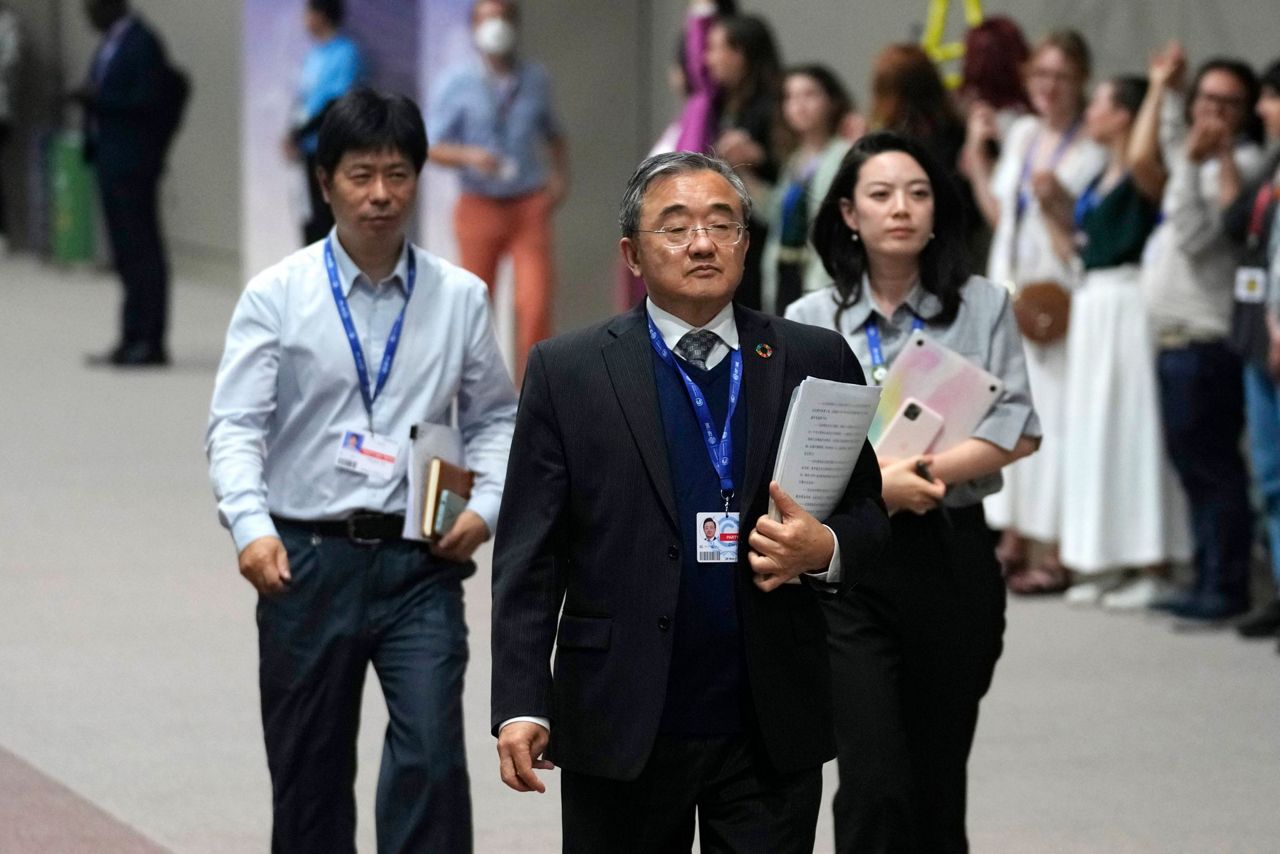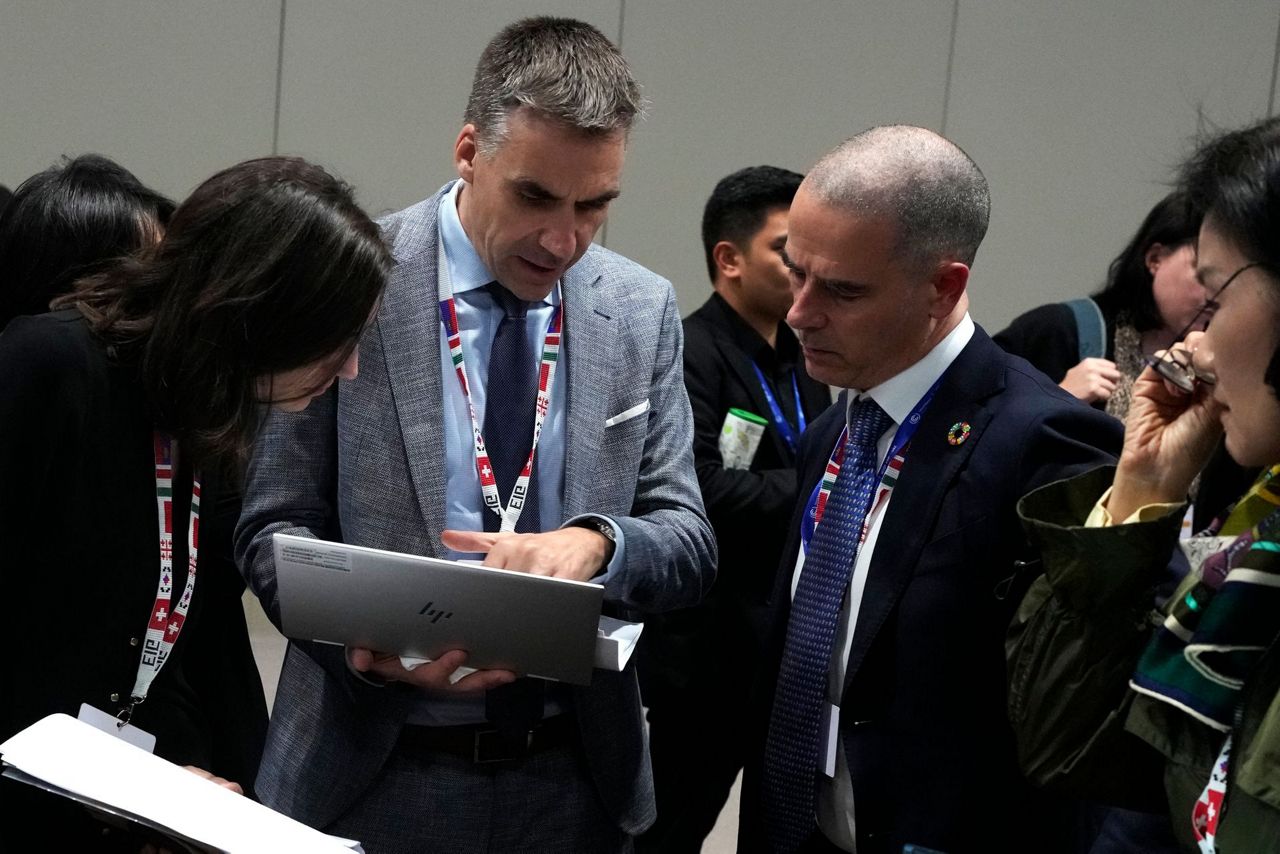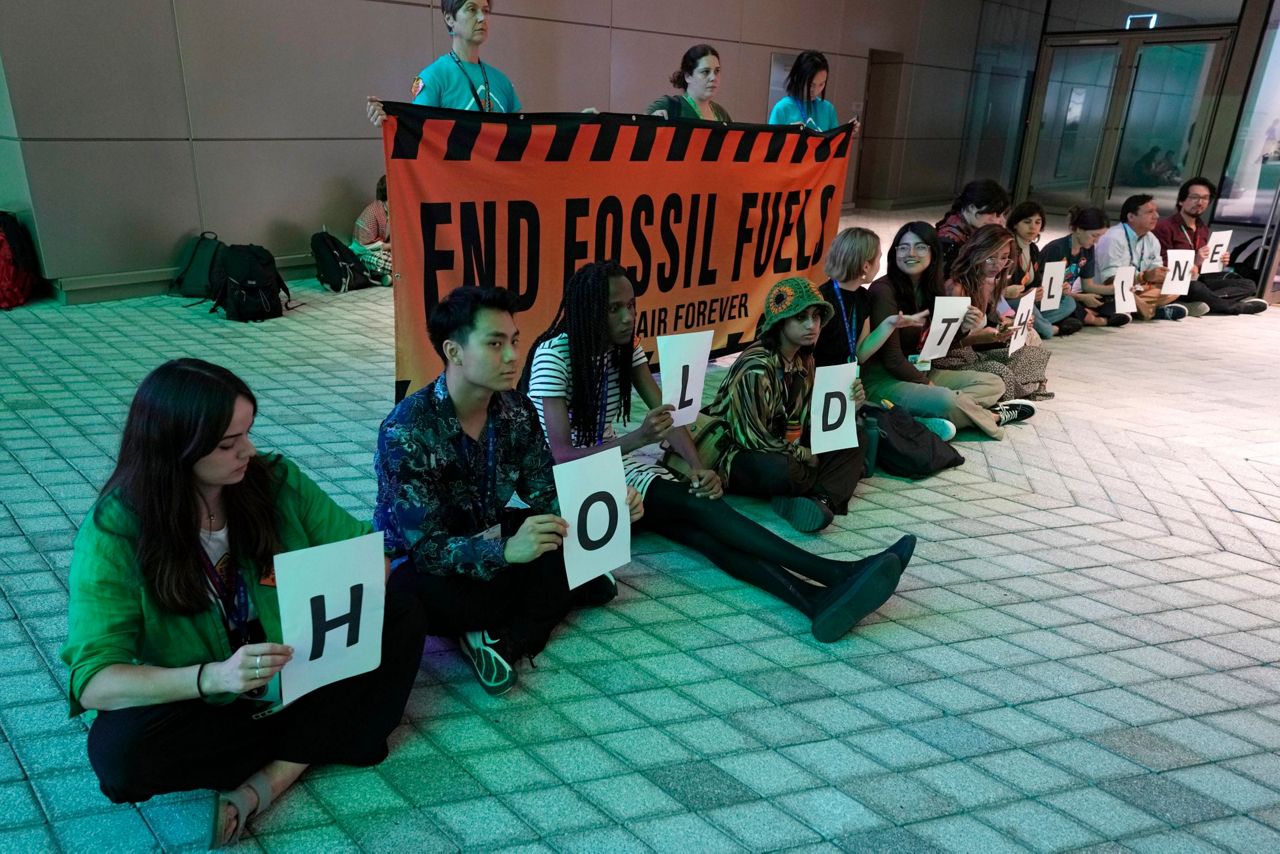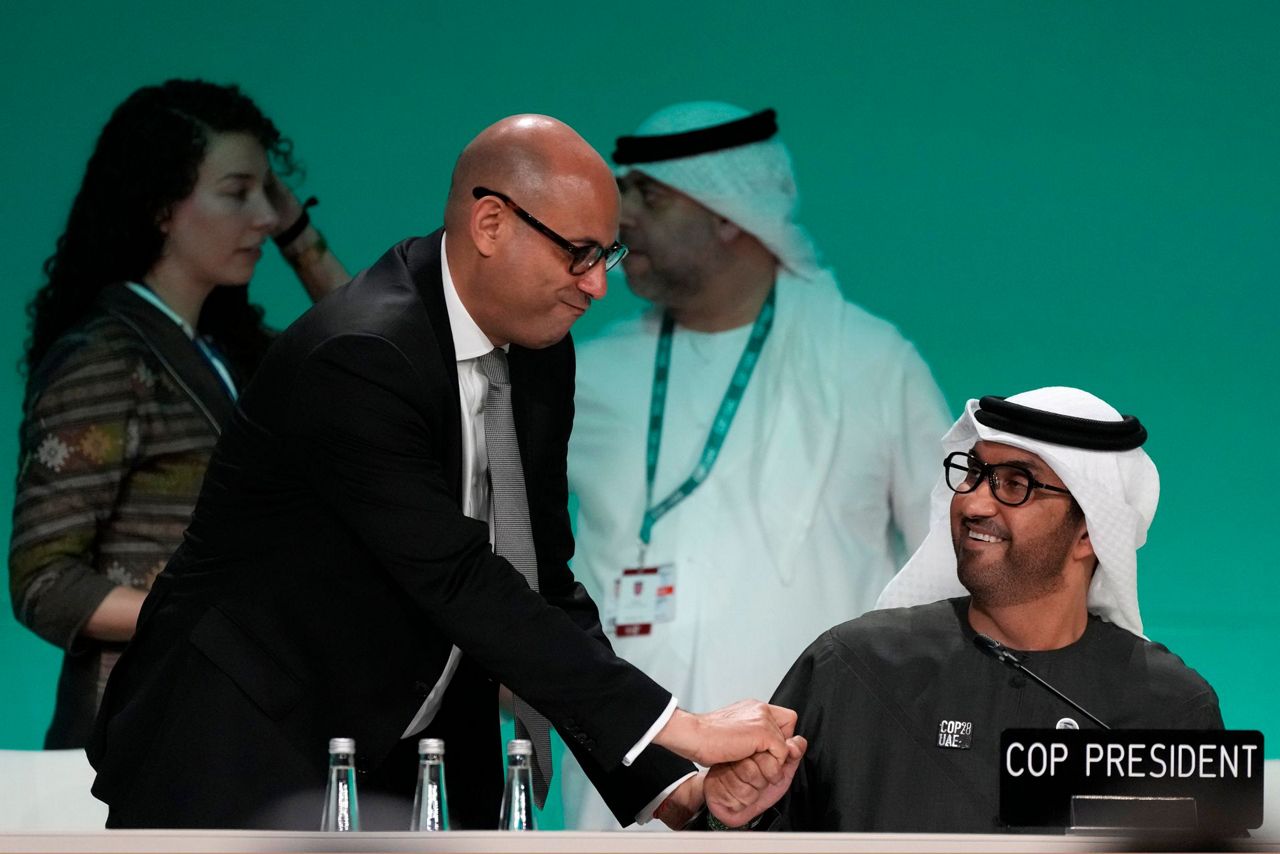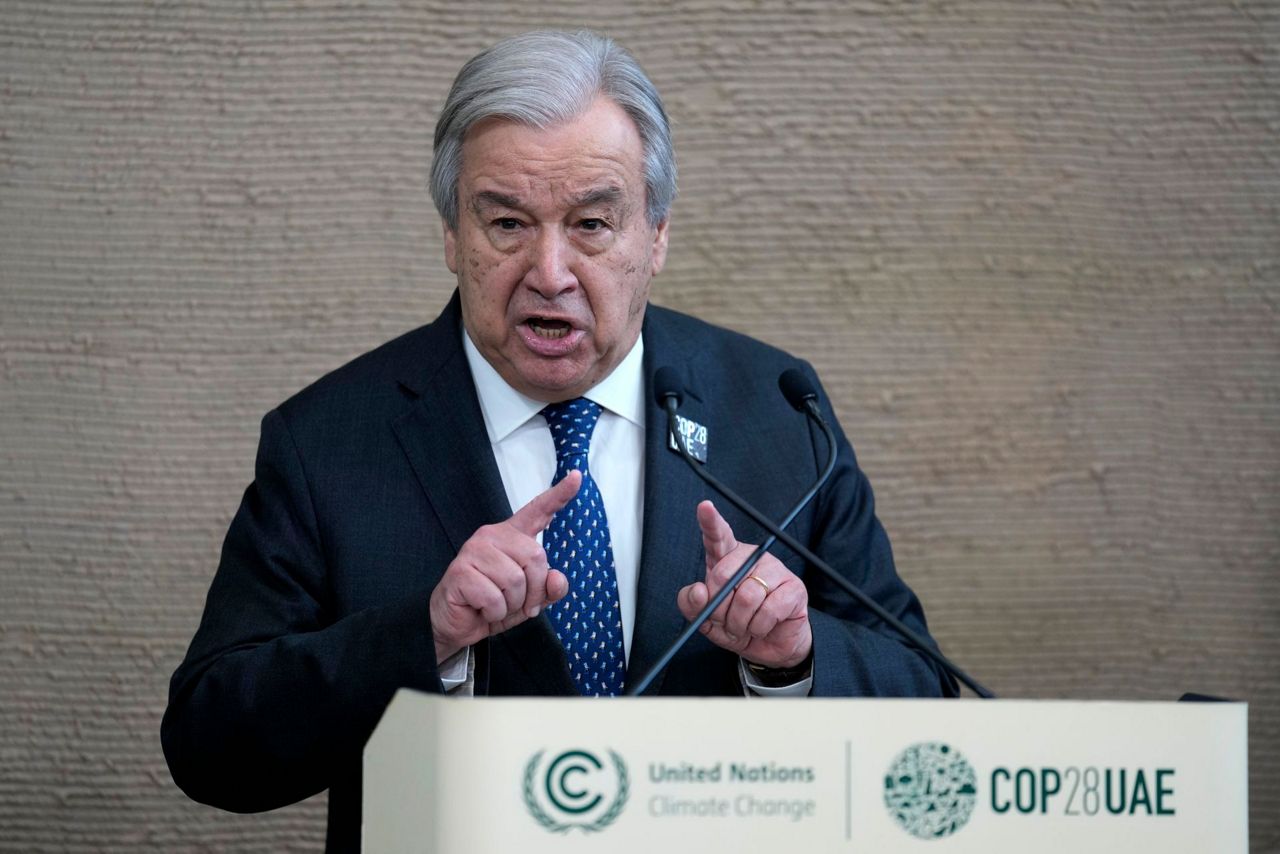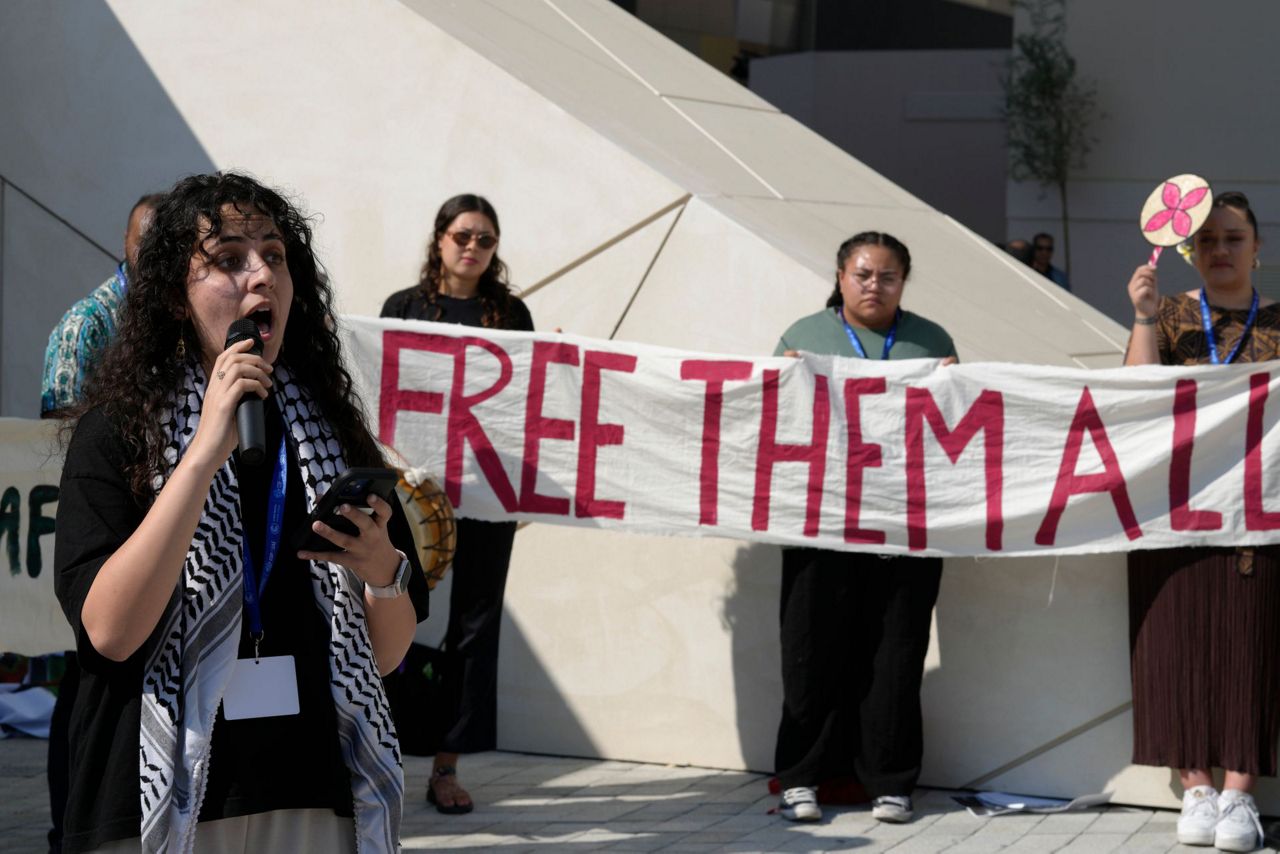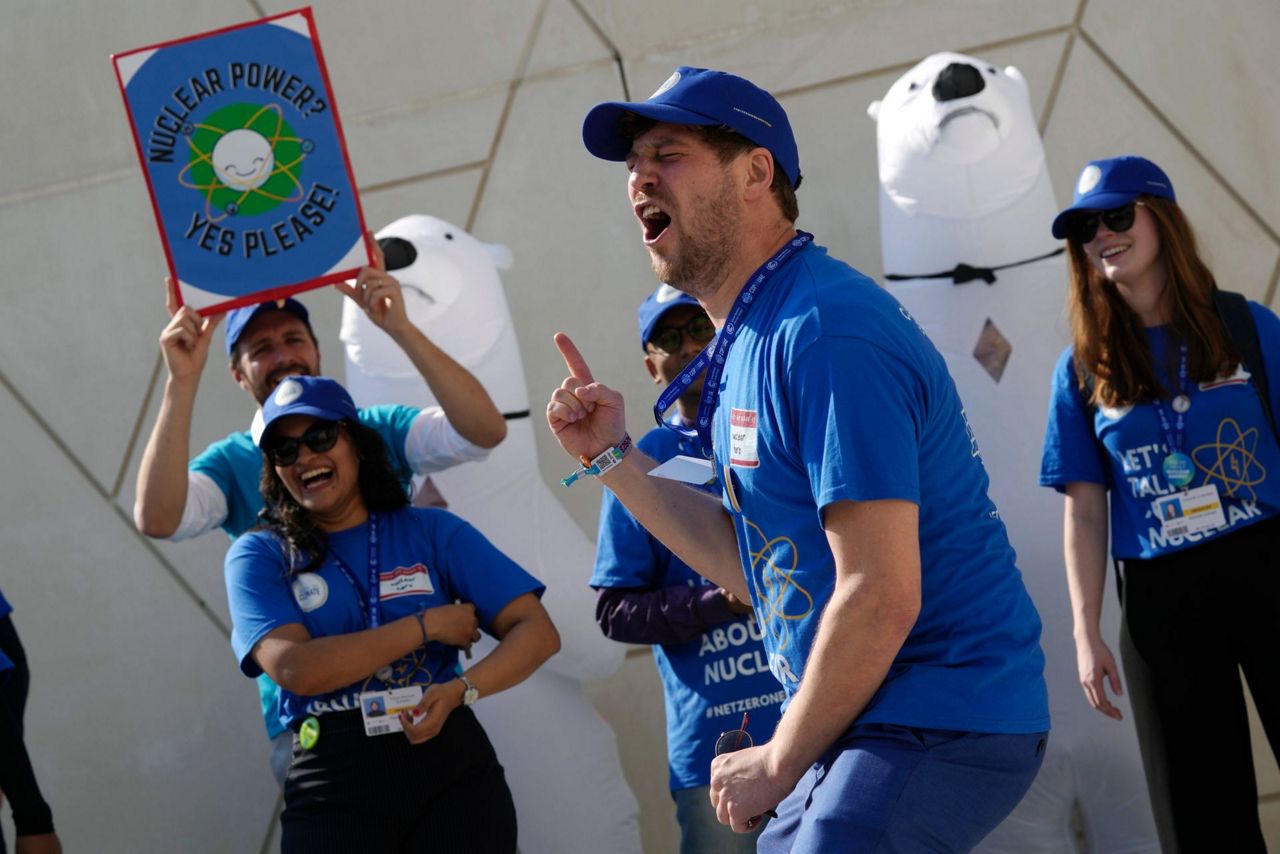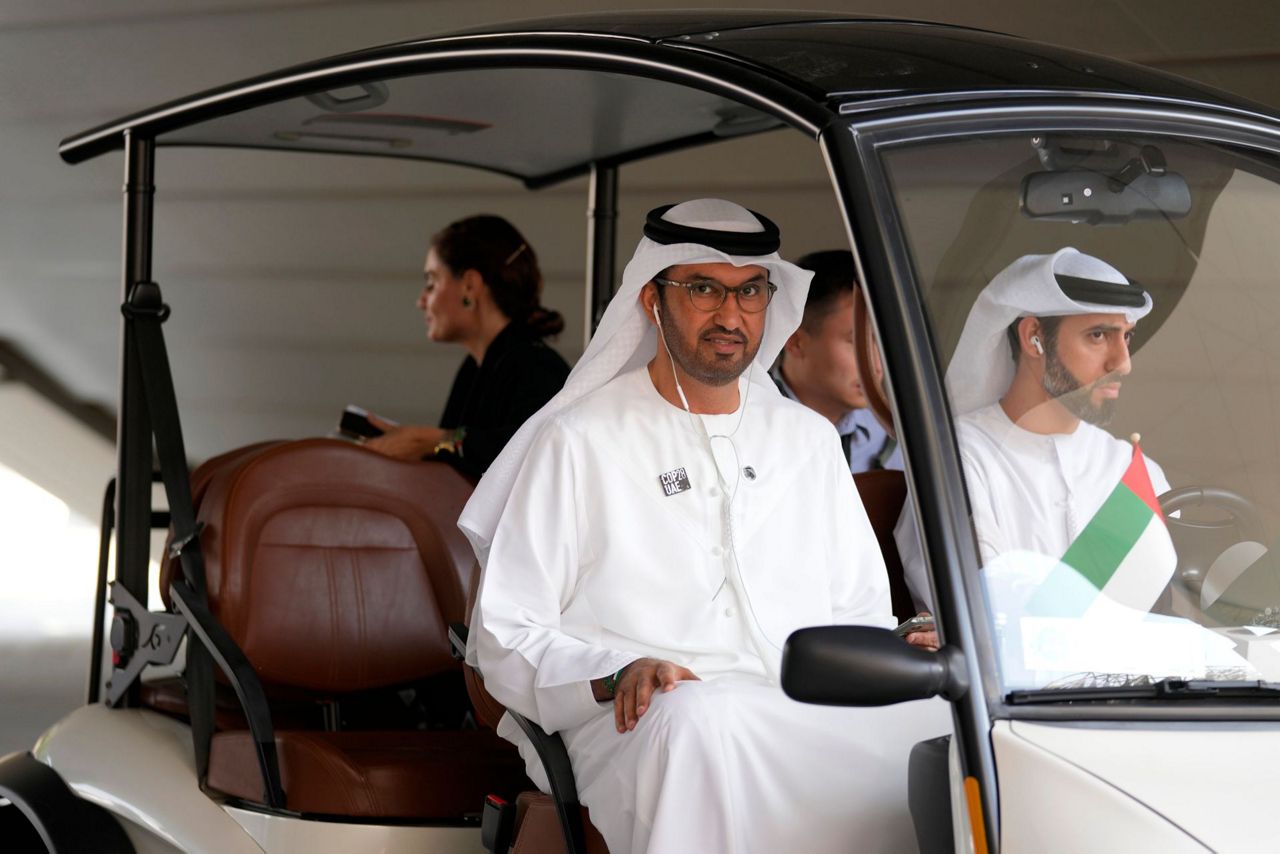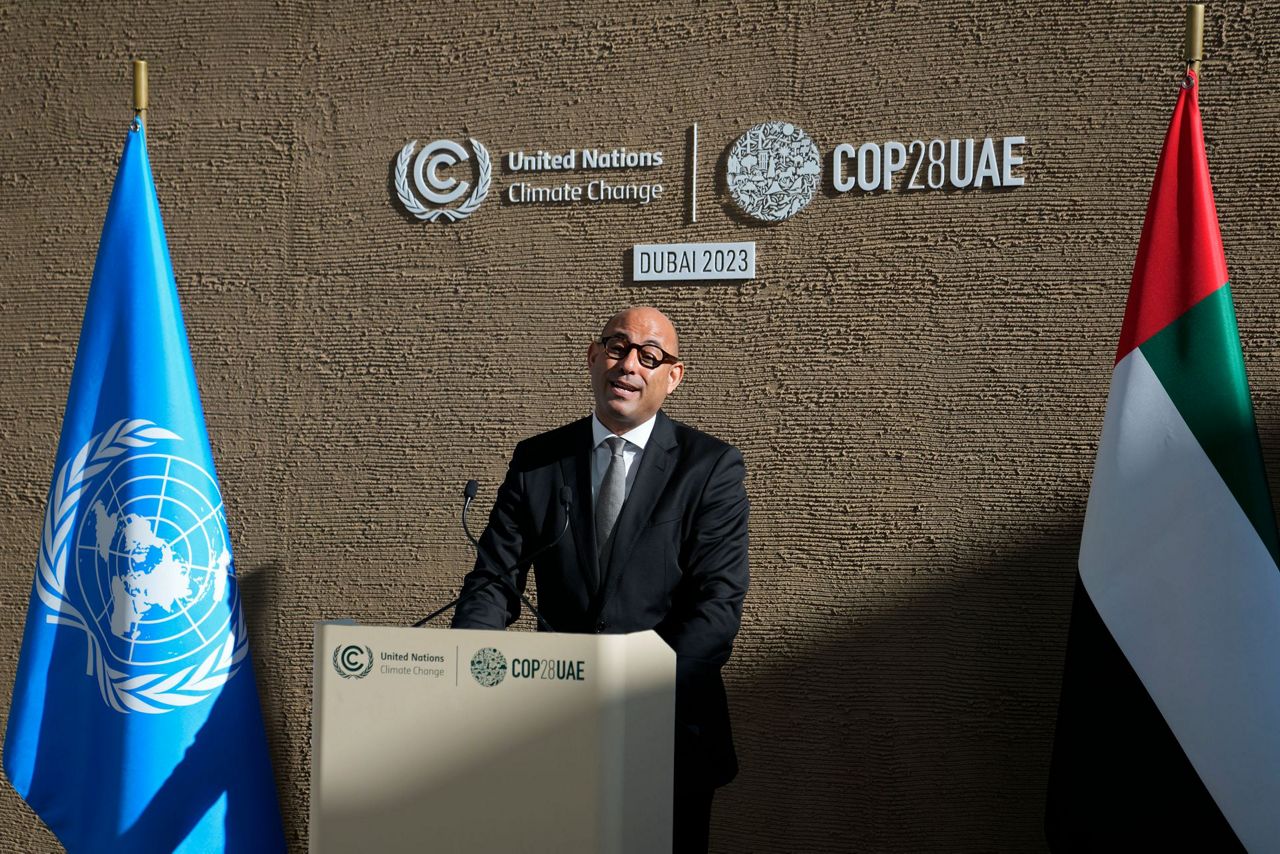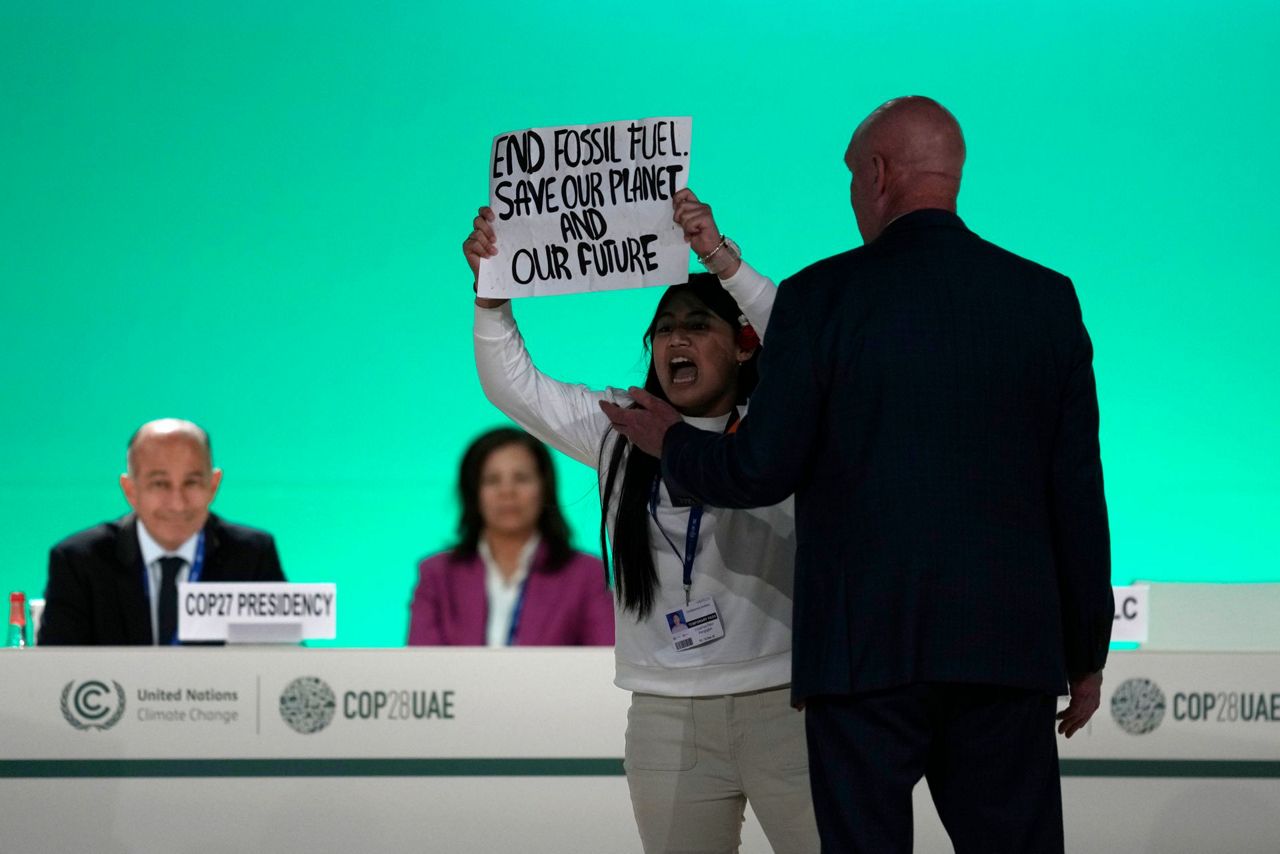DUBAI, United Arab Emirates (AP) — Negotiators from around the world haggled deep into the night to try to strike a deal to halt global warming at United Nations climate talks, with Western powers and vulnerable developing countries worried that a proposed text fell far short of goals to save the planet.
A new draft released Monday of what's known as the global stocktake — the part of talks that assesses where the world is at with its climate goals and how it can reach them — called for countries to reduce “consumption and production of fossil fuels, in a just, orderly and equitable manner."
The release triggered a frenzy of fine-tuning by government envoys and rapid analysis by advocacy groups, just hours before the planned late morning finish to the talks on Tuesday — even though many observers expect the finale to run over time, as is common at the annual U.N. talks.
Bangladesh climate envoy Saber Chowdhury said a revised text would be presented Tuesday morning that takes into account the many comments from participants.
“It’ll be new. To what extent it’s improved remains to be seen,” he said shortly after the session ended at around 2 a.m.
In a closed-door meeting late Monday, some country delegation chiefs needled COP28 President Sultan al-Jaber’s frequent calling of the goal to limit warming to 1.5 degrees Celsius (2.7 degrees Fahrenheit) since preindustrial times his “north star,” saying the president’s proposal misses that star.
“It is not enough to say 1.5, we have to do 1.5. We have to deliver accordingly,” Norway minister Espen Barth Eide said.
Some Pacific Island nations argued the text amounted to a death sentence.
The proposed text “doesn’t even come close to delivering 1.5 as a north star,” Tuvalu’s delegation chief Seve Paeniu said. “For us this is a matter of survival. We cannot put loopholes in our children’s futures.”
Small island nations are some of the most vulnerable places in a world of rising temperatures and seas. Final decisions by COPs have to be by consensus. Activists said they feared that potential objections from fossil fuel countries, such as Saudi Arabia, had watered down the text.
United States climate envoy John Kerry says the language on fossil fuels in the text “does not meet the test” of keeping 1.5 alive.
“I, like most of you here, refuse to be part of a charade” of not phasing out fossil fuels, Kerry said. “This is a war for survival.”
Kerry's remarks received a round of applause from the room. But when he left the meeting, climate activists confronted Kerry, calling for more action, saying their future was at stake.
“Young voters like me who want to vote for Biden and who want to vote Democratic are not feeling that our voices are being heard and that we need a transition away and out of fossil fuels,” said activist Elizabeth Morrison.
Zhao Yingmin, China’s vice minister for Ecology and Environment, said at the meeting that “the draft fails to address the concerns of developing countries on some key issues” and in particular the idea that greenhouse gas emissions must peak by 2025.
Saudi Arabia's Noura Alissa said the deal “must work for all.”
"It must be relevant, it must make to sense to accelerate action for every single country in this room, not some over others,” she said.
Philda Nani Kereng of Botswana said her country "is a developing country ... it’s still, you know, exploiting natural resources for economic development, for livelihood improvement, for job creation and so forth.”
Talking about what the outcome of the talks should be, she said “we are very careful to make sure that it’s not going to sort of stop us from developing our people."
“We need to find a solution that has maximum ambition and maximum equity,” South Africa minister Barbara Creecy said as negotiators broke well after midnight. “One without the other will not solve the conundrum we face.”
A combination of activists and delegation members lined the entry into the special late-evening meeting Monday of heads of delegations, with their arms raised in unity as delegations walked through, creating a tunnel-like effect. A few activists told delegates passing by: “You are our last hope. We count on you.”
In the 21-page document, the words oil and natural gas did not appear, and the word coal appeared twice. It also had a single mention of carbon capture, a technology touted by some to reduce emissions although it's untested at scale.
Activists said the text was written by the COP28 presidency, run by an Emirati oil company CEO — Al-Jaber — and pounced on its perceived shortcomings. It fell fall short of a widespread push to phase out fossil fuels like oil, gas and coal altogether.
Al-Jaber skipped a planned news conference and headed straight into a meeting with delegates just after 6:30 p.m. It was the second time for him to cancel a press briefing on Monday.
“We have a text and we need to agree on the text,” al-Jaber said. “The time for discussion is coming to an end and there’s no time for hesitation. The time to decide is now.”
He added: “We must still close many gaps. We don’t have time to waste.”
Critics said there was a lot to do.
“COP28 is now on the verge of complete failure,” former U.S. Vice President and climate activist Al Gore posted on X. “The world desperately needs to phase out fossil fuels as quickly as possible, but this obsequious draft reads as if OPEC dictated it word for word. ... It is deeply offensive to all who have taken this process seriously.”
Jean Su from the Center for Biological Diversity said the text “moves disastrously backward from original language offering a phaseout of fossil fuels."
"If this race-to-the-bottom monstrosity gets enshrined as the final word, this crucial COP will be a failure,” Su said.
But Mohamed Adow of Power Shift Africa said the “text lays the ground for transformational change.”
“This is the first COP where the word fossil fuels are actually included in the draft decision. This is the beginning of the end of the fossil fuel era,” he said.
Also on Monday, the latest draft on the Global Goal on Adaptation — the text on how countries, especially vulnerable ones, can adapt to weather extremes and climate harms — was released on Monday.
Cristina Rumbaitis del Rio, a senior advisor for adaptation and resilience at the U.N. Foundation said “the new text doesn’t have the strength that we were hoping to see."
___
Associated Press journalists Olivia Zhang, Malak Harb, Bassam Hatoum and David Keyton contributed to this report.
___
Associated Press climate and environmental coverage receives support from several private foundations. See more about AP’s climate initiative here. The AP is solely responsible for all content.
Copyright 2023 The Associated Press. All rights reserved. This material may not be published, broadcast, rewritten or redistributed without permission.



